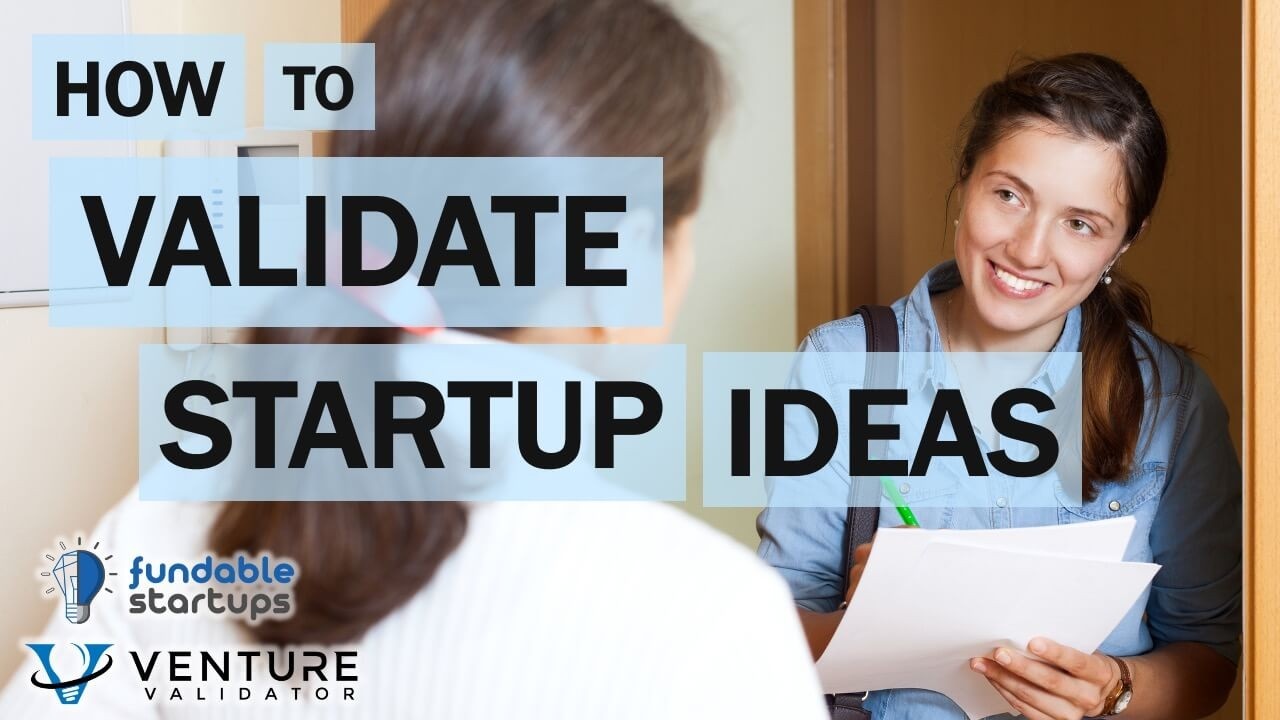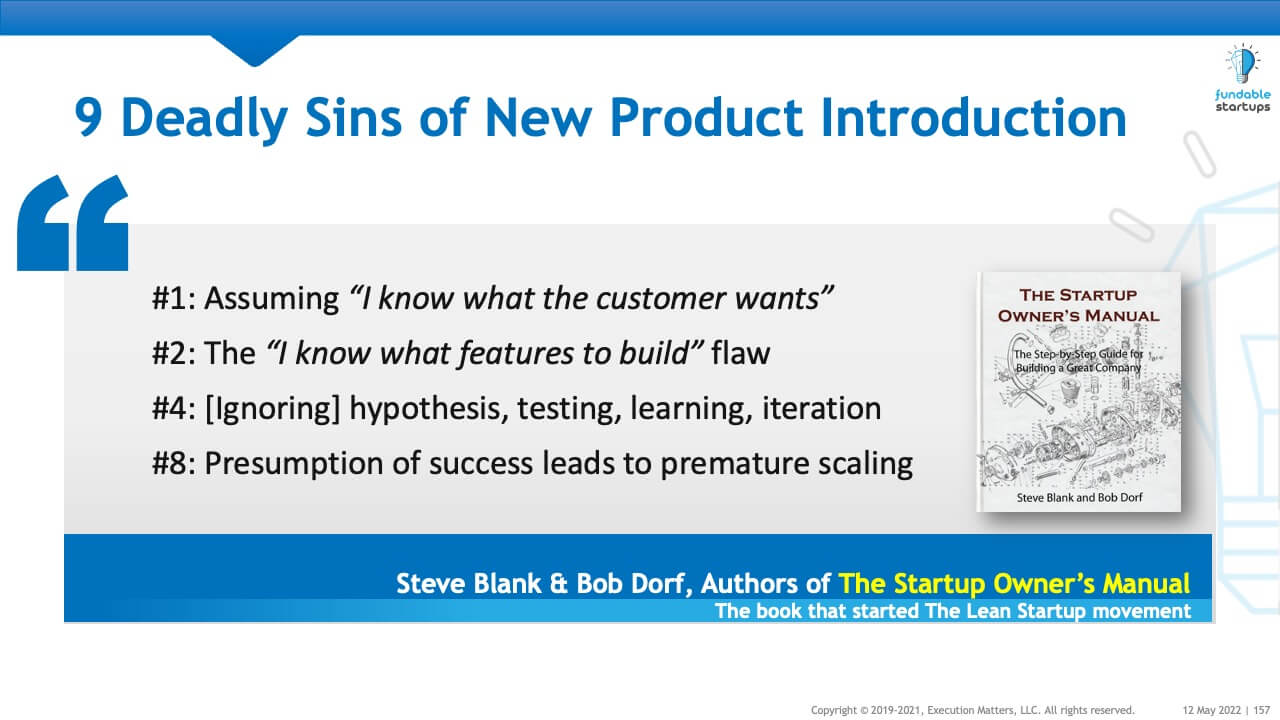
Common Startup Validation Mistakes
May 12, 2022How we helped a founder fix his validation approach
A founder (we'll call him "Joe") in a recent group coaching session shared how his validation roadmap involved a research team from a prominent university and social media influencers. Knowing this is not common, I asked for more details. Joe explained that the university researchers were keen on how his product correctly identifies mistakes people make when exercising (wrong posture, incorrect bio-mechanics, etc.). Joe also explained his plan to recruit a small army of social media influencers to push his product.
Unfortunately, neither of these actions actually demonstrates true validation.
The Importance of Validation
Steve Blank's The Startup Owner's Manual and Eric Ries' The Lean Startup both emphasize the importance of validating your idea with your target customer BEFORE investing tons of time, effort or funds building the product or marketing it. Almost half of the Nine Deadly Sins of of New Product Introduction involves poor validation.

Product Efficacy Is Not Idea Validation
Joe made the mistake of equating the university's validation of the product's efficacy with validating the idea. They are not the same. An ophthalmologist may conclude that my new product correctly measures the amount of redness in my eyes, but that doesn't tell me anything about whether or not the target customer views this as a problem that is worth paying cold hard cash to solve.
Don't Confuse Influencer Interest with Validation
In addition, getting indications of interest from social media influencers doesn't mean your idea is validated. The influencer often gets a benefit from promoting your product that your target customer will not receive. Their willingness to promote your product is tainted because they are getting paid or are getting free stuff. You can't conclude that your startup idea is validated unless you have a large pool of actual target customers who give you concrete evidence of product/market fit.
Besides, if you pay or give a benefit to an influencer to pump your product, that influencer effectively becomes your vendor. Getting a vendor to transact their product or service is not validation. That's just a customer buying something from a vendor. To use an analogy, finding several CPAs who are willing to do your business tax return doesn't mean that your startup idea is validated.
Types of Validation
Launching a startup often means you'll go through at least some of the following types of validation:
- Idea Validation: confirmation that your target customer will pay for your product to reduce pain or increase joy/pleasure.
- Business Model Validation: confirmation that selling your product will produce profits that will sustain and grow your business.
- Pricing Validation: confirmation that the value your product delivers exceeds the price you charge. Note that Pricing Validation is a component of Business Model Validation.
- Efficacy Validation: confirmation that your product is effective at solving the problem. A classic example is a drug development company getting FDA approval on their clinical trials.
- Go-To-Market Validation: confirmation that your approach to enter a market or to gain customers is effective over a sustained period of time.
- Messaging Validation: confirmation that the way you tell your story resonates quickly with your target audience.
- Manufacturing Validation: if you make a physical product, confirmation that you can consistently build a high-quality product at a reasonable price. Note that many physical products in emerging technologies or leading-edge industries may face special challenges in making their product.
- Adoption Validation: confirmation that your product can be assimilated into the customer's routine and used on a regular, almost frictionless basis. Adoption can be a key challenge for companies selling large, complex solutions into large enterprises.
Many other types of validation exist, but for early-stage startups, nothing is more important than Idea Validation. Unfortunately, most founders don't understand the nuances of idea validation. Writing accurate product descriptions, curating a panel of target customers, and carefully structuring survey questions is a lot harder than it looks. Doing it poorly results in low-resolution data with a poor signal-to-noise ratio. This is why we have a 3-hour deep-dive class on How to Validate Startup Ideas.
Validate the Right Way
If you prefer to have expert guidance throughout your idea validation journey, we also offer a done-for-service through Venture Validator. Where our training course teaches you to build a bicycle so you can pedal from point A to point B, Venture Validator is like Uber: it quickly and easily takes you where you want to go.
When you launch a project with Venture Validator, you'll have a trained expert build your surveys, find qualified customers to take your surveys and handle all of the data analysis to make sure you gather as many rich insights as possible from your idea validation research.
The peace of mind and months of time you'll save by working with Venture Validator are truly invaluable when handling something as important as idea validation. Don't know if your startup is a fit for Venture Validator?
Schedule a free consultation with an expert from Venture Validator!


